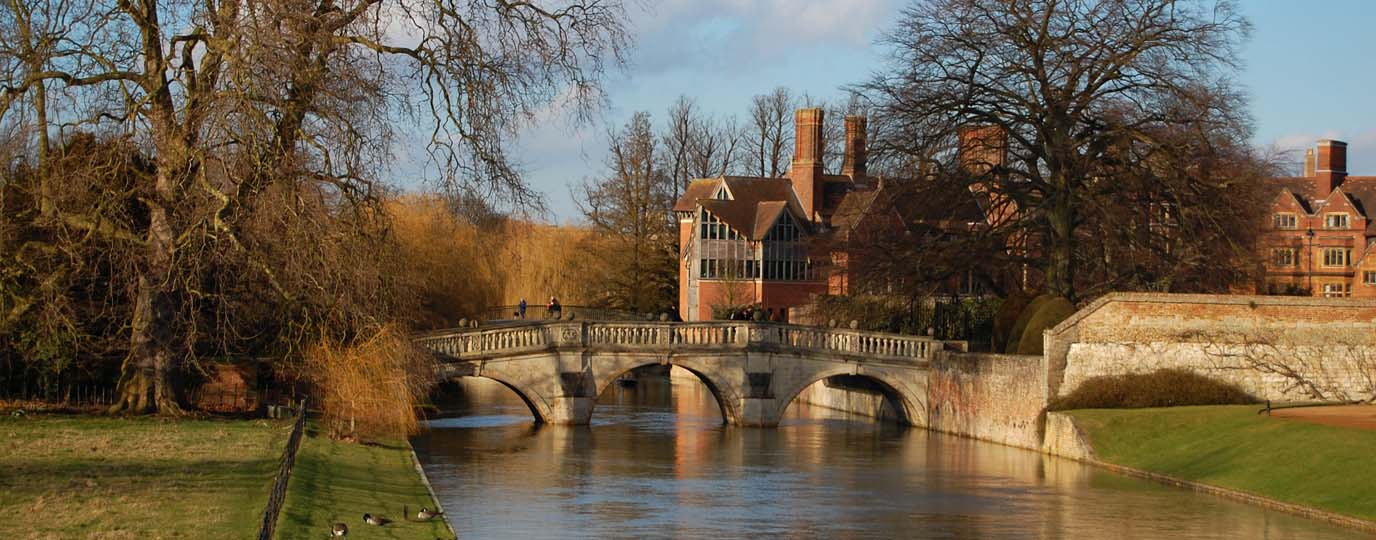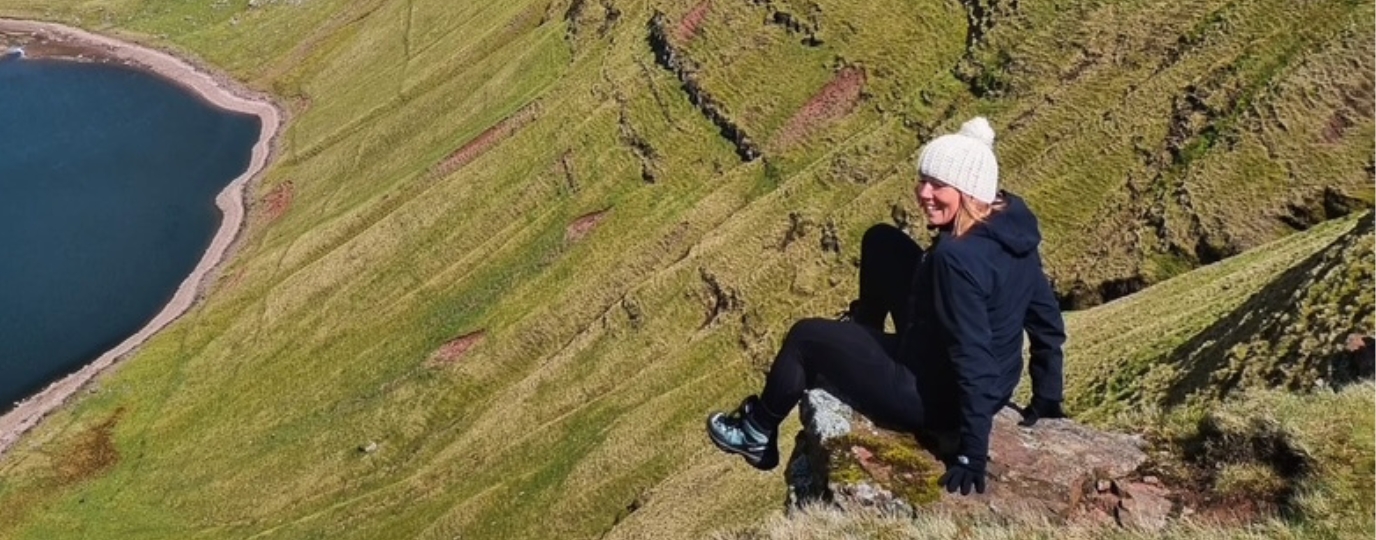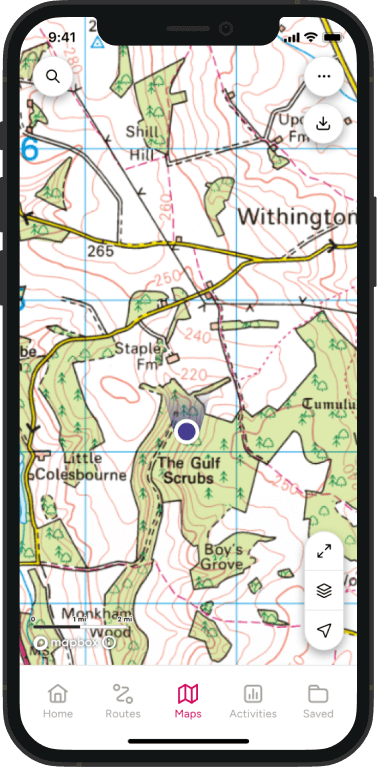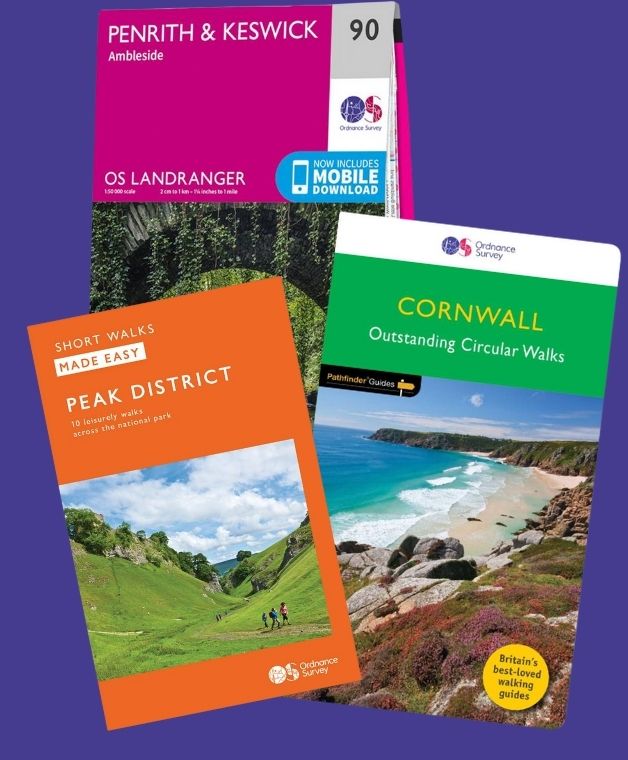Deciding what to wear for Autumn Walks
As the weather changes, the clothing and equipment you need for walking and hiking changes too. Here’s a guide by OS team member and champion of navigation Jonathan Elder on Autumn walking clothing and accessories.
If you’re looking for some great Autumn Inspiration take a look here – Your Ultimate Autumn Adventure Guide
What to wear when walking in Autumn?
One of the things I love about walking is being able to observe the changing seasons – but changing seasons means coping with different conditions, so here’s my head to toe guide for walking clothing and equipment for autumn. This is, of course, going to change a lot depending on what you like doing, where you go and your personal tastes, but hopefully it’s a good start for those new to walking!
Autumn Walking Hats and Head Gear
A decent hat makes a huge difference all year round. For autumn I prefer a water resistance baseball cap style. The peak help keeps the sun out your eyes, and works well paired with a waterproof hood, and it’s still small enough to pack away when not needed.
Sunglasses are still a good idea in autumn; the sun will be low a lot of the time, and walking straight into a sunrise or sunset can still be bright enough to be uncomfortable.
Autumn Layering Tips for Walking
Autumn is all about layers (see our guide to layering). The temperature can fluctuate wildly, even on the same day. I tend to get hot, so this time of year I’m still going for relatively light layers:
Base layer: A wicking t-shirt or longer sleeve top that I can wear alone if it’s especially warm.
Mid later: A fairly thin windproof fleece is my go-to mid layer – I’m currently using an OEX brand one. A fleece is much more breathable than a full jacket, which will keep you comfortable if it gets more strenuous, such as up a hill. Denser windproof fleeces offer a good combination of warmth and some weather protection.
Outer layer: A thin, breathable and packable jacket. Small enough to be easily packed away. I’m only bringing this out when it’s raining, although if it’s colder than expected it will create a useful extra layer of insulation, trapping in warm air. Hoods on these jackets can be annoyingly floppy, so a peaked hat underneath helps maintain structure and the ability to see.
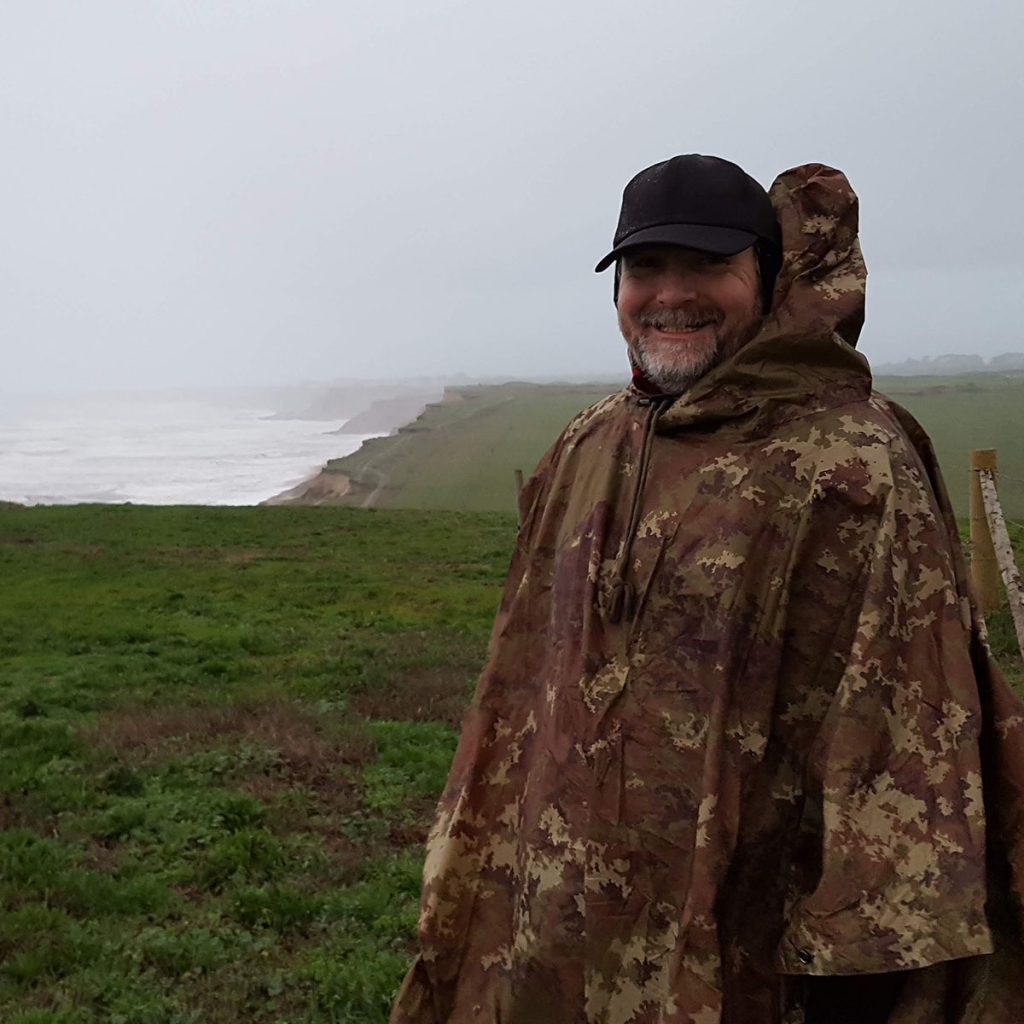
Wet weather: If I know it’s going to be raining hard, I will often swap for a soft shell jacket with a poncho. The jacket provides extra warmth, while a poncho gives good waterproof coverage over a rucksack and thighs. The only disadvantage is it gets quite flappy in windy weather or hill peaks. Read about waterproof and breathability ratings here.
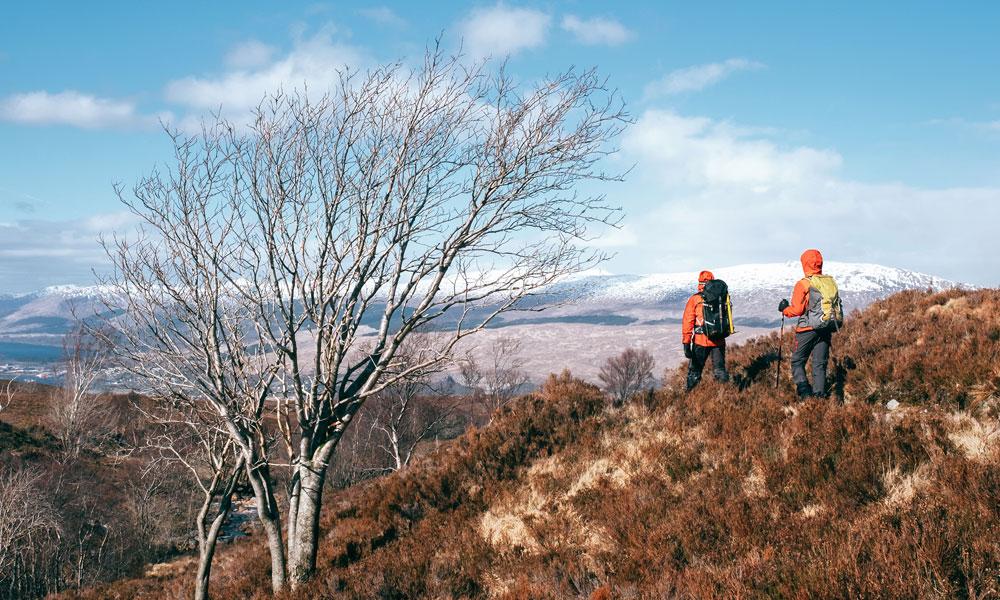
Even on a chilly day, you might need fewer layers than you expect once you get going
What trousers are best for Autumn Walking?
Most of the time, I’m sticking to trusty, fast-drying walking trousers, such as Craghoppers Kiwi Pro. The cotton polyester blend is comfortable and not sweaty on warmer days, and dries fast enough that even in moderate rain they remain no wetter than moist.
If you are walking in an area with lots of vegetation, gaiters protect the lower leg from wet grass and splashes. Because they don’t cover the big muscles of the thighs, they don’t make me overheat the way full waterproof overtrousers tend to.
For really heavy rain, lightweight waterproof overtrousers are a useful addition. Look for ones you can get on and off without removing your boots, which is not something you want to be doing in a downpour half-way up a hill. For me that means a full zip version, because I have large feet, and equally large boots that just don’t work with the partial zip or ‘just plain baggy’ types.
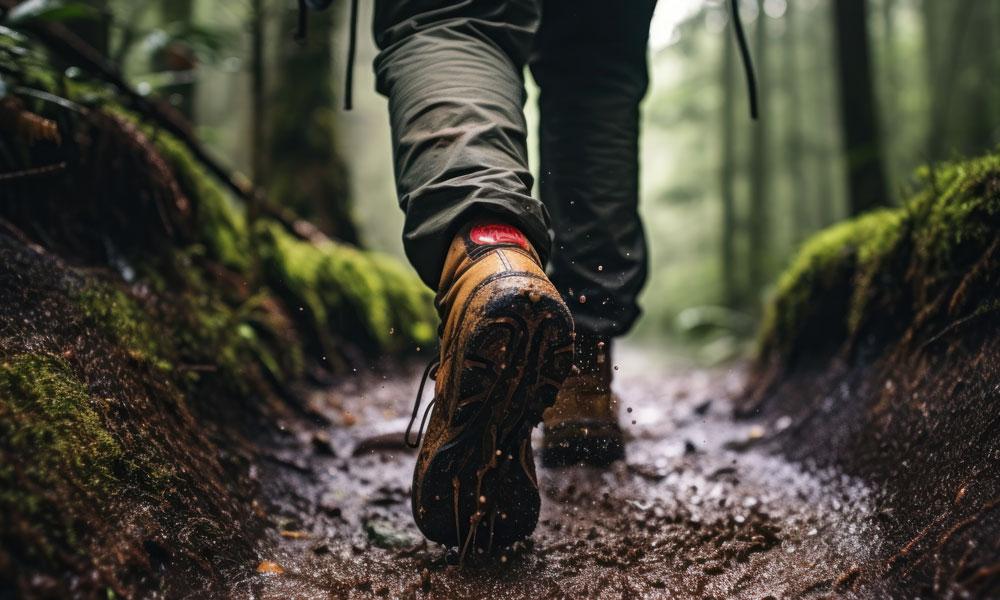
Waterproof boots are a must for everywhere but paved paths in autumn
Autumn Walking Footwear
Unless you stay on well-maintained paths, you are going to be spending a lot more time walking in puddles and mud in autumn. I will generally make the switch from lightweight walking shoes to waterproof boots anywhere it’s likely to be wet. Being able to go straight through a muddy patch is usually much easier than picking your way around, and prevents paths spreading unnecessarily.
The choice of walking boots is huge, but look for decent grips on the sole to cope with slippery slopes, a tongue that’s attached to the body to prevent water getting in from rain or puddles, and a low weight to reduce fatigue.
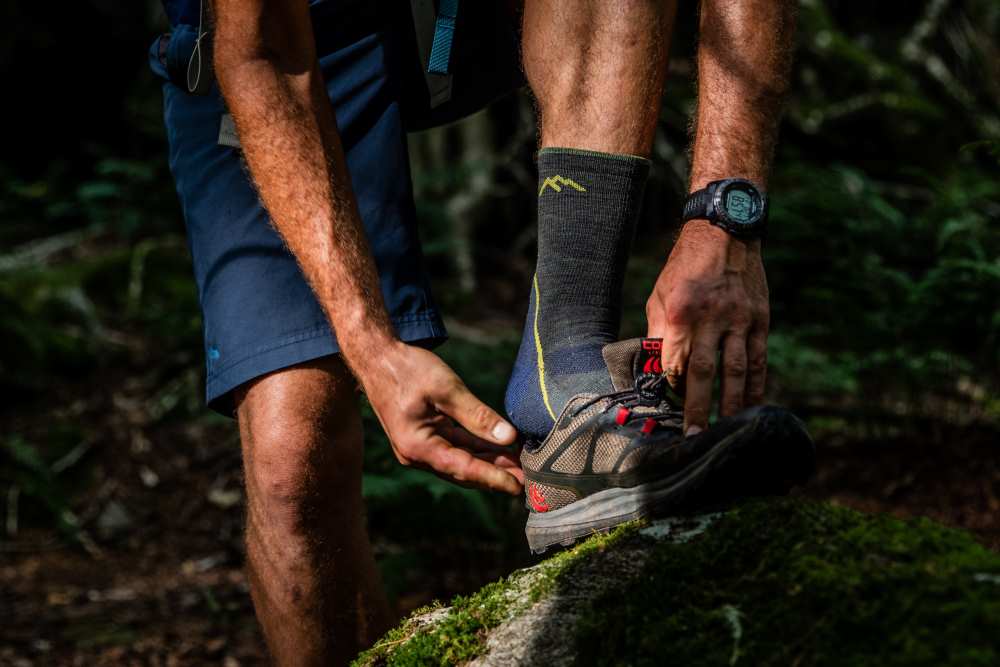
The right socks can make a huge difference to your foot comfort, read our post all about avoiding blisters when hiking. I’ll tend to use very thin socks right the way through winter as I don’t get cold feet, but if you do, look at medium weight merino wool, which combines good insulation and comfort. Socks work in tandem with your boots, so thinner or traditional leather boots might benefit from thicker socks for padding, while heavily padded boots might need a thinner sock. Look for seamless socks to avoid friction even if they get damp, and ones tall enough to full cover your ankles where the boots are, plus a bit more. If you get cold legs, taller socks are a great options for warmth. Read our handy guide on walking socks.
Best Rucksacks for Autumn Walking
Rather than splash out (pun absolutely intended) on a waterproof rucksack, I’ll use a cheaper cover or just wear a poncho over it, although this is a pain if you need to access it often.
In the rucksack I’ll keep a map and compass (I’m usually navigating by OS Maps on a my phone or a handheld GPS), waterproofs, snacks and water. Because the weather is so changeable, I’m normally carrying pretty much the same amount of water as in summer, even if I typically use less.
For longer walks (and when I remember) I also bring a sit mat, as finding a dry rock or bench to sit on can be a challenge, and a cold wet bum is no fun at all. These provide a waterproofing and an amount of insulation and padding that greatly improves lunch breaks. I also bring some spare socks for changing if they get wet, and a powerbank for the phone or GPS.
Especially in later autumn I’ll also be carrying a basic thin fleece as an extra layer if it’s colder than expected, such as on a hill peak or I’m waiting for a while. A basic head torch is also a useful addition – I rarely plan night walks, but it can be reassuring to have one just in case a route takes longer than you expect, especially if parts are on dark country roads.
Accessories for Autumn Walking
A list of useful accessories for walking in Autumn, these would also make great gifts for hikers.
- A waterproof phone case allows you to keep using your phone even if it’s wet. A spare waterproof case, especially a larger one designed for tablets is ideal for important stuff like car keys, wallets and tickets. Even should the worst happen (yes, falling into a stream is not unheard of), it will provide much better protection than just in the pocket of your jacket.
- A lightweight walking pole (or two) is useful for slippery slopes and checking how deep a puddle is before stepping in it.
- A watch with step-counter is not a requirement, but I really like knowing how far I’ve walked. I have a Garmin wearable, which also does handy things like give sunrise and sunset, a simple compass and stopwatch features, all of which are useful. It’s faster to check that than pull out a phone or GPS, although for navigation I do need the bigger screen!
What to keep in the car for Autumnal Walks
- I always keep some spare plastic shopping bags in the car – they are useful for muddy boots and wet clothes. If it’s a longer drive I’ll normally have a complete change of clothes and shoes, as it’s unpleasant driving for an hour or two while still wet.
- Spare charger cables for everything, as it’s reassuring to have everything at 100% before you start.
- A blanket or two
- Snacks and a thermos flask, you’ll love how prepared you were when you get back into your car
I hope this list helps when you are deciding the walking gear you need for autumn. If you have comments, additions or ideas, please use the social media links below!
Read our complete guide to hiking for beginners if you’d like more advice and take a look at the articles we have chosen for your next read below.

